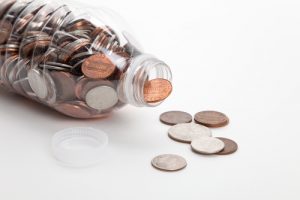 No joke: On April 1, a U.S. state and a Canadian province will implement some big changes to their beverage container deposit programs.
No joke: On April 1, a U.S. state and a Canadian province will implement some big changes to their beverage container deposit programs.

 Associate Editor Jared Paben has worked for Resource Recycling since December 2014. Most of his earlier career was spent as a reporter for the daily newspaper in Bellingham, Wash., but he also has experience working for the Oregon volunteerism commission and for Oregon nonprofits serving low-income populations. He can be contacted at [email protected].
Associate Editor Jared Paben has worked for Resource Recycling since December 2014. Most of his earlier career was spent as a reporter for the daily newspaper in Bellingham, Wash., but he also has experience working for the Oregon volunteerism commission and for Oregon nonprofits serving low-income populations. He can be contacted at [email protected]. No joke: On April 1, a U.S. state and a Canadian province will implement some big changes to their beverage container deposit programs.
No joke: On April 1, a U.S. state and a Canadian province will implement some big changes to their beverage container deposit programs.
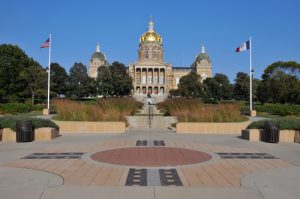 Legislative movement on a pair of bills in the Hawkeye State has drawn recycling industry interest in recent days.
Legislative movement on a pair of bills in the Hawkeye State has drawn recycling industry interest in recent days.
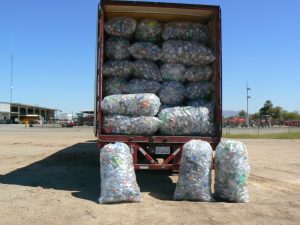 California officials say they intercepted two semi-trucks carrying used beverage containers from Arizona to California, where they were going to be illegally redeemed.
California officials say they intercepted two semi-trucks carrying used beverage containers from Arizona to California, where they were going to be illegally redeemed.
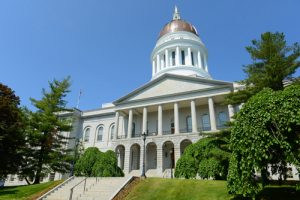 Maine’s lawmakers and governor are fighting a big battle over small containers. The legislature wants to place a deposit on liquor bottles called “nips,” but Gov. Paul LePage is vowing to fight it.
Maine’s lawmakers and governor are fighting a big battle over small containers. The legislature wants to place a deposit on liquor bottles called “nips,” but Gov. Paul LePage is vowing to fight it.
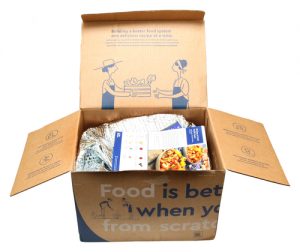 Meal kits delivered straight to your doorstep are marketed as providing fresh, healthful food in a convenient way. But they also contain a lot of non-recyclable packaging, much of which carries problematic labeling.
Meal kits delivered straight to your doorstep are marketed as providing fresh, healthful food in a convenient way. But they also contain a lot of non-recyclable packaging, much of which carries problematic labeling.

Carey Hamilton
Carey Hamilton, executive director of the Indiana Recycling Coalition and a board member of the National Recycling Coalition, has succeeded in her bid for a seat in the legislature.
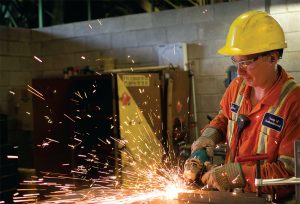 Over the past decade, the materials recovery facility in Northumberland County, Ontario has enjoyed a series of upgrades, including new balers, a new screen system and optical sorters for fiber. But Karl Allen, plant manager, has learned that equipment is only one of the ingredients for success.
Over the past decade, the materials recovery facility in Northumberland County, Ontario has enjoyed a series of upgrades, including new balers, a new screen system and optical sorters for fiber. But Karl Allen, plant manager, has learned that equipment is only one of the ingredients for success.
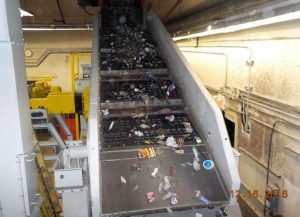 A materials recovery facility spent $671,000 to buy and install glass cleanup equipment, which is generating $296,000 in annual savings. The project in Guelph, Ontario shows how investing in glass recovery technologies can pencil out favorably for MRFs.
A materials recovery facility spent $671,000 to buy and install glass cleanup equipment, which is generating $296,000 in annual savings. The project in Guelph, Ontario shows how investing in glass recovery technologies can pencil out favorably for MRFs.
 Ontario lawmakers last week passed a bill mandating producers to pay the full costs of recycling printed paper and packaging. However, many specifics of the recovery system, which will target a wide range of plastic products, have yet to be determined.
Ontario lawmakers last week passed a bill mandating producers to pay the full costs of recycling printed paper and packaging. However, many specifics of the recovery system, which will target a wide range of plastic products, have yet to be determined.
Apple says it is taking steps to boost its internal recycling efforts after the diversion rate at the company’s non-manufacturing sites fell for the second year in a row.
